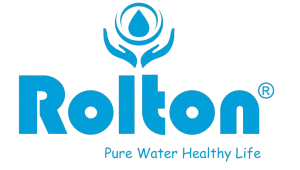Faqs
1. What are the impurities found in water?
There are two forms of impurities found in drinking water, suspended and dissolved:
- a) Suspended impurities such as mud, dust, sand, bacteria, viruses etc
b) Dissolved impurities that are soluble in water such as; pesticides, arsenic & fluoride and heavy metals salts like mercury, lead, copper, cadmium.
2. What is water purification?
- The process or method by which water if freed from any kind of impurity is referred to as water purification. These impurities range from physio-chemical contaminants to microorganisms.
- Water purification process contains many steps, depending on the nature of the impurities. These steps can differ for different types of water.
3. What is Reverse Osmosis Technology in water purification?
Reverse Osmosis is a process where water molecules are forced through a 0.0001 micron semi permeable membrane by water pressure. A line of TFC – (Thin Film Composite) sheets are skillfully sandwiched together and rolled up around a hollow central tube in a spiral fashion. The sizes of these tubes depend on the quantity of water to be processed.
The reverse osmosis process of purification is mainly meant to reduce the ‘salt content’ from the water.
4. What is the difference between purified water and bottled mineral water?
There are two major or vast differences between purified and bottled water; cost and purification to the point of use.
An efficient, water purifier provides you with water that is physically, chemically and microbiologically pure. More importantly, it ensures that the water is 100 percent pure at the time of use with no scope for recontamination.
Bottled water is not purified at point of use. Thus, it has a chance of recontamination if stringent quality control measures are not followed.
Bottled mineral water also proves to be expensive when consumed on a regular basis.
5. How do I know which water purifier I need for my home/office?
Water treatment is like any other treatment process. The key is to figure out the problem with the water, in order to treat it. Depending on the water input TDS one has to select the right technology to purify the water.
6. Is it true that RO Water Purifier removes the essential minerals in water?
That is a general misconception! Aqua guard does not reduce any essential minerals in your drinking water. There is a mineral modulator, specially designed to produce electromagnetic vibrations in the water. This helps prevent the mineral scale formation inside the UV chamber and helps in retaining the essential minerals in water.
7. How long can the water be stored in the filter?
The filtered water should be stored in cool, clean containers preferably made of steel or glass.
For hygienic reasons, it is preferable to replace the stored water after every two days. The storage filter itself tends to breed microorganisms and thus, the water in the filter should be constantly used and replaced.
8. What is the desirable quality of drinking water?
As per BIS (The Bureau of Indian Standards), the desirable quality of drinking water should have TDS (Total Dissolved Salts) content of 500 ppm (parts of the salt present in a million parts of water) or less. If at all, such quality is not available, the compromise level is water with upto 2000 ppm.
9. What Are Total Dissolved Solids?
“Dissolved solids” in water refers to minerals, salts, metals and anions dissolved in water. This includes anything present in water other than suspended solids. (Suspended solids are particles or substances that are neither dissolved nor settled in the water.
In simple terms, TDS concentration is the sum of the cations (positively charged) and anions (negatively charged) ions in the water.
